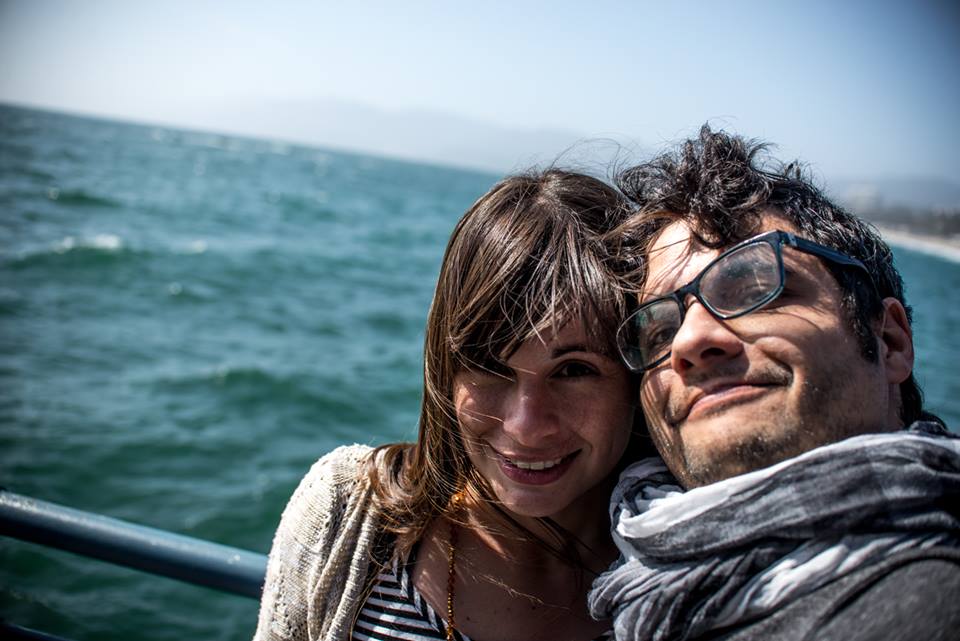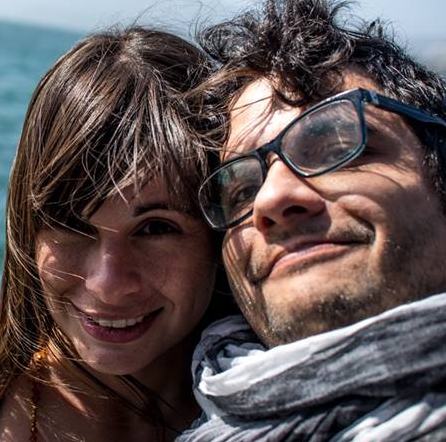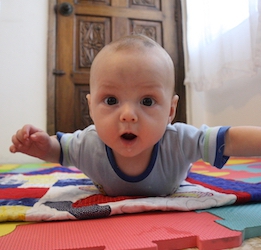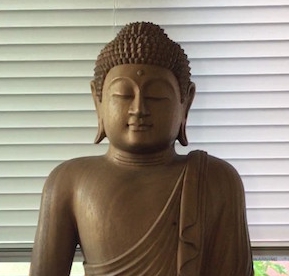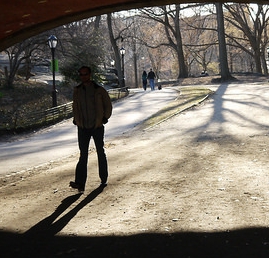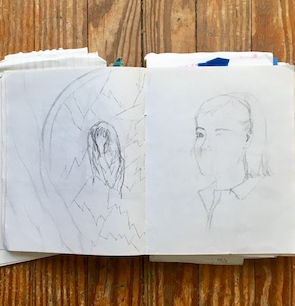On that sunny morning at Terminal D, on the second floor of George Bush Intercontinental Airport in Houston, the security screening officer announced in a casual voice that my husband was going to have to wait. In order to enter the United States, he had to be interviewed first by a border patrol agent. I sighed, my eyelids trembling as I smiled nervously and told myself, “This is just protocol, I’m sure.”
A few months earlier, we had gone to the US Consulate in Santiago, Chile, to get our visas, thinking that nothing could go wrong: I was wearing my lucky yellow underwear – yes, a real Chilean custom! That feeling, however, would not last. The official that interviewed us at the time, a man with a cold look that minutes earlier had made a Haitian woman cry by denying her a permit to fly to the US, explained the situation. My papers were approved, but since Boris and I had signed a civil union agreement instead of a civil marriage contract, he could not give my partner a “husband” visa. It caught us by surprise: a Chilean couple we knew that had moved to Chicago a month earlier had signed a civil union agreement too and gone through the same immigration process without any inconvenience. The civil union agreement (different from the traditional civil marriage contract, but with similar benefits) was a new option in Chile at the time. Officials didn’t know how to deal with it or how it was supposed to operate in relation to immigration laws. We, unfortunately, were caught in the gap.
Still, the consular official told us not to sweat it. He said we could explain our situation to the federal agent at the airport in Houston. It was the Houston agent who would make the last call on the duration of Boris’ visa. “They should be pretty sympathetic,” the official added before dismissing us. We agreed, nodding at each other. It was not like Chile and the US had bad relations. Since the ‘70s, when the CIA had helped overthrow President Allende’s democratically elected government, the two countries had become allies in the common task to defend the interests of neoliberalism. So, for better or worse, my country and the US were friends, and for the first time it seemed like Boris and I could benefit from that relationship.
Nevertheless, we had to be prepared. We gathered background documents that might demonstrate we did not have ulterior motives for coming to this country. We were both journalists who had always had stable jobs back home. I had won a scholarship to a US university to pursue a Master’s degree, and Boris, my boyfriend of almost four years, and now my new spouse too, had joined the adventure to be there for me. That was it, no secret hidden agendas but to escape from our boring lives working eight hours a day, five days a week. The week before our flight, we spent hours practicing what we would say to the US officials at the airport.
“I came to become a student in California,” I articulated in my non-native-but-still-pretty-good-English that I’d learned in the bilingual school I had attended since I was five. “Now you go, love.” I smiled at Boris. He was stacking a pile of shorts and short sleeve T-shirts on our bed that he was planning to pack for the trip.
“I’m the spouse,” he mumbled with pride, both fists chambered at his hips like a superhero. “I’m here to give support to my wife.” The word wife still felt strange in his mouth, like a hard piece of gum just taken out of its wrap. We both laughed.
On that morning in Houston, after a fourteen-hour flight across the continent, not the documents, nor the certificates, nor the practiced speeches would make a difference. “Your husband will have to wait,” the American officer said, his eyes unmoving from the computer screen.
He told us to move aside and wait for an agent who would lead Boris to the US Customs and Border Protection office. I knew that there was no reason to be afraid. We were not doing anything illegal, but while we stood there, holding hands, at the end of the row of booths, I was nervous for Boris’ English, which was not as good as mine. Without me by his side, he was going to have to cope with the language by himself. As the border patrol agent approached, Boris puckered his lips at me and then followed in the man steps, leaving me behind clinging to the padded orange carrier with my cat, Matilda, inconsolably meowing inside.
Exhaustion consumed me, and my brain felt like ground beef as I walked towards the closest row of seats. From there, I could not see the blinded windows or the only entrance door to the Border Protection office. Nearby, a group of people was seated, stunned looks on their non-white faces, waiting for loved ones too. Most were women. Some wore colorful tunics and massive African turbans or covered their heads with black hijabs. In the cacophony of voices, I recognized a Latin-American Hispanic accent. “Con esa pinta pareces un mamarracho,” a woman said to another, telling her she looked like a mess. I wasn’t sure if it was Colombian or Peruvian, but it didn’t matter. The very fact that I could understand those words without effort comforted me a bit.
Still, I was unsettled: we were supposed to catch a second flight to California in about an hour. I saw the agent that a while ago had escorted Boris away. He looked young, had blue eyes and a dimple on his chin that made him look friendly. I approached him. “Excuse me. Do you, by any chance, know anything about my husband? He’s still inside and there’s a flight we need to catch,” I gesticulated. For the briefest moment, I felt hopeful, but hope vanished rapidly.
“I’m not allowed to tell you anything about your husband,” he paused. “He might be there for another ten minutes or he might never get out and be sent back directly to his country.” I could swear I saw him hiding a subtle smile between his lips.
I thought he was joking – he had to be joking! What kind of person says something like that to a woman who’s visibly concerned? Satisfied with my gasp, he said nothing more and continued on his way, leaving me behind with this feeling of desolation.
I sat again, confused and overwhelmed. What was I doing here? Why had I decided to come to this country where people were rude and mean? I remembered months ago when someone had warned me that there were states where immigrants were not quite welcome, Texas among them. At the time, that advice had made me consider spending extra money to change our tickets, so that we could land in California instead. But finally, I had dropped it. I was surely being paranoid. This was the United States of America, the land of liberty and democracy, and we were all invited. We had nothing to fear, right? Wrong. I took a deep breath and blinked frantically, an attempt to make the tears go back inside.
I imagined Boris inside the office sweating under the big coat and the blue blazer he had decided to wear to save space in his suitcase, going through our practiced conversations, slowly repeating the words, syllable by syllable. “I’m… here... to… suuuuh...port.”
An hour later, I watched him walk down the hallway in my direction. He looked tired; purple bags had formed under his eyes. I threw myself in his arms, my hands grabbing to the fabric on the back of his shirt damp with sweat.
“I thought they were sending you back,” my voice cracked. He kissed me on the forehead and we both sat down on the row of seats.
“I have bad news,” he said, his left hand patting the side of Matilda’s case under his seat. “They only gave me six months,” he sighed. He had been given a six-month permit to stay in the US, while our plan was to stay at least for two years. He was going to have to reapply for the partner visa or try to get an extension.
“I don’t care about the permit,” I frowned. “You’re here! You’re not sitting on a plane on your way back to Chile.” I grabbed his hands and squeezed them.
“Well, for a moment I thought that was going to be the case. I didn’t really understand how serious the situation was until they interviewed me,” he said as he rumpled the white envelope in his hands where we had put his passport and every other document that proved that he was entering the country legally.
Boris explained that while he waited inside the Customs Office, sitting near a portrait of President Obama with his gentle eyes promising that everything would be okay, people came in and out through the main door. He heard them struggle to communicate with the patrol officers by babbling random words in English or using hand signals. He imagined himself doing the same thing, the officers staring back at him with a mocking smirk. Then he realized that some of the interviewees were taken away through a small hallway in the back and never returned.
After twenty minutes of tense waiting, a large female agent sitting behind a tall desk called Boris’ name. As he walked towards her, whatever was left of his optimism began to escape. Her hair was slicked into a bun, a stern look occupying her face. After several minutes of awkward silence as she examined his documents, the agent finally told him: “Mr. Yaikin, I already know why you are here. You don’t fool me.” Boris couldn’t help but to nervously giggle, looking around for Bloopers TV cameras. He wasn’t trying to “fool anyone,” he had hardly even said a word. Why was he suddenly someone not to trust?
“You think this is funny? You think this is some kind of joke?!” She raised a menacing eyebrow.
Boris repeated the lines we had rehearsed back home, trying hard to make his pronunciation as clear as possible. “I’m a spouse,” his voice quivered. “I’m here to support my wife.”
“And how do you plan to pay for your stay?”
“We saved the money,” he answered. He had a bank certificate of our savings somewhere in the pile of documents between his wet hands.
“Is that so? And where are you going to live?”
“We are renting a place. I have the address. I can show...” Boris pulled his cellphone out of his pocket.
“Give me that,” the woman interrupted. With her hand she grabbed his cellphone. For several minutes, she went through his social networks. She read through his personal email. Over and over, she looked for the words job, employment, trabajo, contract. In the meantime, Boris remained silent. He didn’t know what to do. Was she allowed to do that? Did he have the right to complain? Could protesting be more harmful for his situation?
But besides suspicions, they had nothing against Boris. Not a single proof that he was lying. So, eventually, they let him to go, assigning him a tourist visa that allowed him to stay in the country for six months. Before he grabbed his passport from the agent’s desk, she looked at him with pursed lips as if she still wasn’t entirely sure that he was telling the truth about his plans. A minute later, we hugged in the airport’s lounge. I sobbed, quietly, pressing my face against the lapel of his coat.
Later that day, while waiting for the domestic flight that would take us from Houston to Los Angeles – where we would board the train to Riverside, our future home for the next two years – a tiny, old woman with slanted eyes and a button nose sat next to me and started making small talk in her perfect American English. I told her we were from Chile. She asked why we were flying to California. I rubbed my temple, as I was starting to get a headache, and answered drily: “I won a scholarship at an American state university, I’m going to study there.”
“Oh, dear,” she exclaimed with excitement, a beaming smile on her face. “The United States is such a great country to live in. You’re gonna love it here!" she said and tapped on my shoulder with her slim fingers.
The speaker called passengers to make a line outside of Gate 23. The woman stood up and followed instructions without saying goodbye. As she walked away, the sound of her feet tapping against the floor merged with the roar of other travelling souls. I looked down the hallway and watched her disappear into a mass of people in flip-flops and Hawaiian shirts heading towards the door, dragging their carry-on cases.
Bernardita García Jiménez is a Chilean writer and journalist, and an MFA in Creative Writing candidate at University of California, Riverside. As a ghostwriter, she has written and published biographies and children’s books. Her writing is influenced by Latin American social changes, human rights, and a particular interest in the concept of community. Her work has appeared in LARB (US), Sudestada (Argentina), El Mostrador (Chile), The Clinic (Chile), among others. She’s also the proud mother of Matilda, a cat who doesn’t know she’s a cat.
